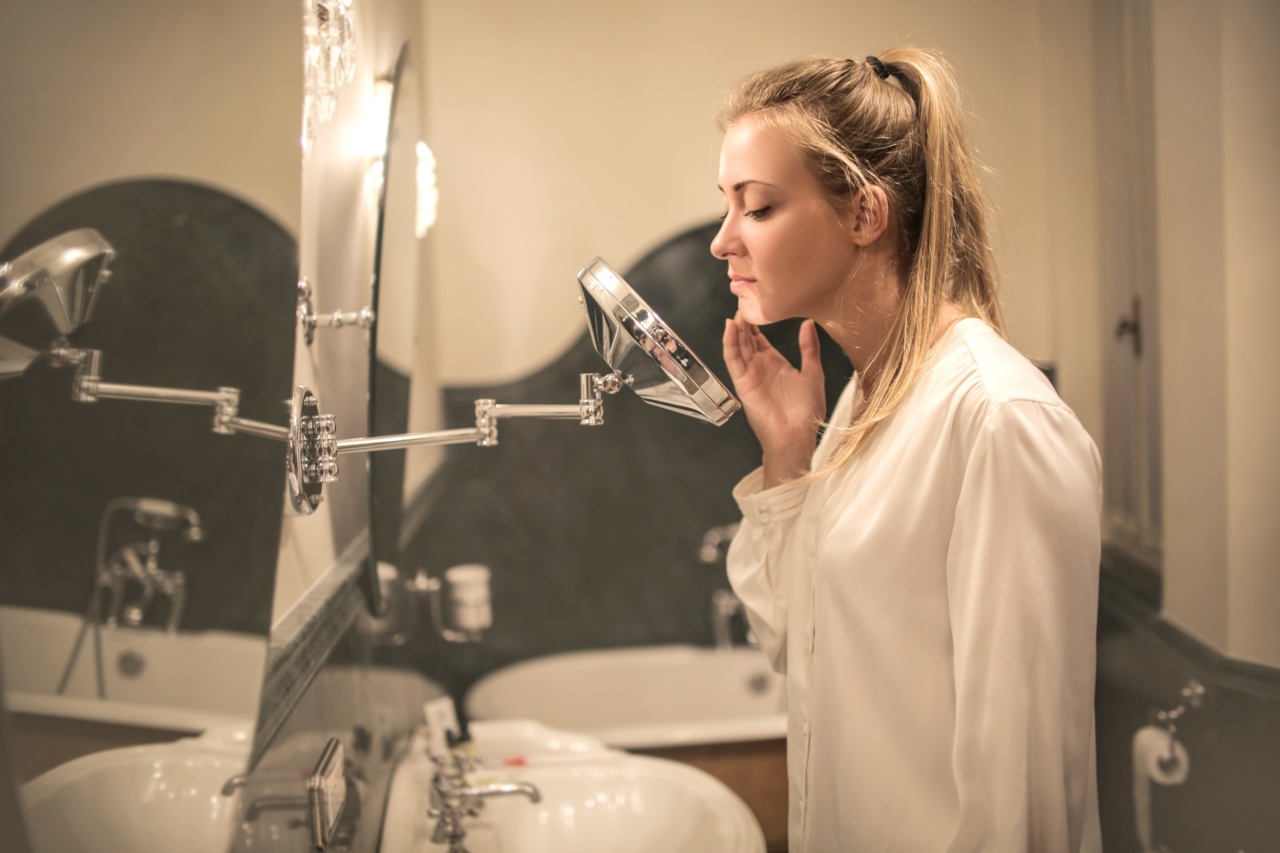Acne is a common skin condition that affects many people, especially during their teenage years. It occurs when hair follicles become clogged with oil, dead skin cells, and bacteria, resulting in red, inflamed bumps on the skin.
While there are many over-the-counter and prescription treatments available, some individuals prefer to opt for natural remedies to get rid of acne. Natural remedies can be gentle on the skin and may also have additional benefits for overall skin health. Here are some effective natural ways to help clear up acne:.
1. Keep Your Face Clean
The first step in any acne treatment routine is to cleanse your face twice a day with a gentle cleanser. This removes excess oil, dirt, and bacteria that can contribute to acne breakouts.
Avoid using harsh soaps or scrubbing too vigorously, as this can irritate the skin and worsen acne.
2. Use Tea Tree Oil
Tea tree oil is a natural antibacterial agent that can help kill the bacteria that contribute to acne. It also has anti-inflammatory properties that can reduce redness and swelling.
Dilute tea tree oil with a carrier oil such as coconut oil and apply it to the affected areas with a cotton ball. Leave it on for a few hours or overnight and rinse off with water.
3. Apply Apple Cider Vinegar
Apple cider vinegar has antibacterial and antifungal properties that can help kill the bacteria on the skin and balance the skin’s pH level. Mix equal parts of apple cider vinegar and water, and apply it to the skin using a cotton ball.
Leave it on for a few minutes, then rinse off with water. Be sure to dilute the vinegar, as using undiluted apple cider vinegar can cause irritation.
4. Try Aloe Vera
Aloe vera has soothing and anti-inflammatory properties that can help reduce redness and inflammation associated with acne. It also has moisturizing effects that can promote healing and prevent scarring.
Apply pure aloe vera gel to the acne-affected areas and leave it on for 10-15 minutes before rinsing off with water.
5. Use Witch Hazel
Witch hazel is a natural astringent that can help remove excess oil from the skin and reduce inflammation. It also has antimicrobial properties that can help kill bacteria on the skin.
Apply witch hazel to a cotton pad and gently wipe it over the acne-affected areas. Avoid using it if you have dry or sensitive skin, as it can cause irritation.
6. Apply Green Tea
Green tea contains antioxidants and antimicrobial compounds that can help fight acne-causing bacteria and reduce inflammation. Brew a cup of green tea and let it cool. Apply the cooled green tea to the skin using a cotton ball or spray bottle.
Leave it on for 10-15 minutes, then rinse off with water.
7. Exfoliate with Baking Soda
Baking soda can act as a gentle exfoliant to remove dead skin cells and unclog pores. Mix one tablespoon of baking soda with enough water to form a paste. Gently massage the paste onto your skin in circular motions, then rinse off with water.
Use this exfoliating treatment once or twice a week.
8. Apply Honey
Honey has antibacterial properties that can help kill the bacteria on the skin and reduce inflammation. It also has moisturizing effects that can keep the skin hydrated.
Apply a thin layer of honey to the affected areas and leave it on for 10-15 minutes before rinsing off with water.
9. Take Omega-3 Fatty Acid Supplements
Omega-3 fatty acids have anti-inflammatory properties that can help calm acne-related inflammation. They can also help regulate oil production in the skin.
Consider taking omega-3 fatty acid supplements or incorporating foods rich in omega-3 fatty acids, such as fatty fish, flaxseeds, and chia seeds, into your diet.
10. Get Enough Sleep and Manage Stress
Sleep deprivation and stress can contribute to acne breakouts. Lack of sleep can disrupt hormone levels and increase inflammation in the body, while chronic stress can trigger the release of hormones that stimulate oil production.
Aim for at least 7-8 hours of quality sleep each night and practice stress management techniques, such as deep breathing exercises or meditation, to help prevent acne flare-ups.































